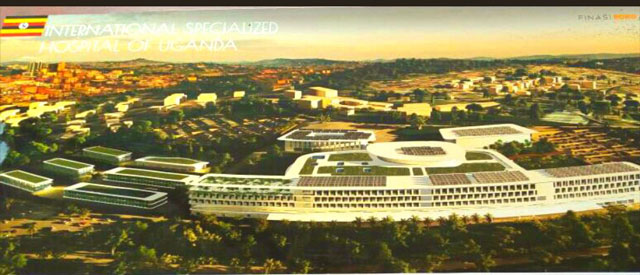
Kampala, Uganda | THE INDEPENDENT | Two charity organizations are seeking Constitutional Court declaration that four sections making up the back bone of Uganda’s Public-Private Partnership Act are inconsistent with the Constitution.
The organizations say the four sections limit public participation in design and implementations of public projects, restrict access to information and disclosure related to those projects and provide fertile ground for corruption in development projects.
Parliament passed the Act in 2015 to bridge financing and procurement gaps in development of public infrastructure in the Water, Health and education, Power, Roads, Tourism and Business sectors. The controversial development of the International Specialized Hospital of Uganda – Lubowa by Chinese Firm at USD 55 Million is one such project.
The others include Kampala – Entebbe Express Way, Bujagali Power Station, Kampala Solid Waste Management Project, Nakawa – Naguru Housing Project and the Uganda People’s Defense Force Housing Accommodation amongst others.
The organizations say The Kampala Jinja Expressway comprise of a 77KM mainline roads with 18km bypasses to the south of Kampala City. The estimated cost of the project is USD 1.2 Billion with government contributing a viability gap funding of approximately USD 400 Million.
The Southern and Eastern Africa Trade Information and Negotiation Institute (SEATINI – Uganda) and the Center for Food and Adequate Living Rights (CEFROHT) says implementation of the Act in its current forms grossly contravenes the constitution.
They want the Constitutional court to declare them inconsistent and halt implementations of all on-going projects under the Act until the provisions are amended by Parliament. The organizations filed the cases as a Public Interest Litigation Constitutional Court Petition No. 17 of 2019 on Friday.
David Kabanda, the executive director of Center for Food and Adequate Living Rights (CEFROHT) says they are challenging sections three, Four, forty-Six and Forty-Seven of the Act among others.
Kabanda says defining public projects as commercial projects in Section Four exposes citizens to exorbitant exploitation by the private investors engaged in the development.
He says they would like the Constitutional Court to declare those sections inconsistent and order for their amendment to prevent misuse of public resources and increasing the country’s indebtedness.
Kabanda says the Act also stipulates that anyone who discloses the trademark of the investor undertaking the public project is liable to a fine of Five Million Shillings or a jail term of five years. This he says will facilitate public officials to collude with private companies to embezzle public funds unchecked.
Suzan Nalunga, the Country Director of SEATINI Uganda says the Public-Private Partnership (PPP) Act risk the Country’s fiscal distress, cost escalation of goods and services and financial risks skewed to the government side.
Professor Ndebesa Mwambutsya, Makerere University Political Science Lecturer says the Act will socialize investment losses and privatize profits if implemented in its current form. He said government should be cautious in engaging the private sector in public works.
Government has already developed guidelines for implementation of the Act by the PPP Unit set up in the Ministry of Finance, Planning and Economic Development.
According to the Unit, most projects taking up the PPP model were negotiated and concluded under different legal regimes and not necessarily the PPP Act which has only been since 2015.
It says prior to the Act, projects were negotiated and implemented under the Public Enterprises Reform and Divestiture Act 1993, the Public Procurement and Disposal of Public Assets Act 2003, the PPP framework policy 2010 and other similar laws.
*****
URN
 The Independent Uganda: You get the Truth we Pay the Price
The Independent Uganda: You get the Truth we Pay the Price



